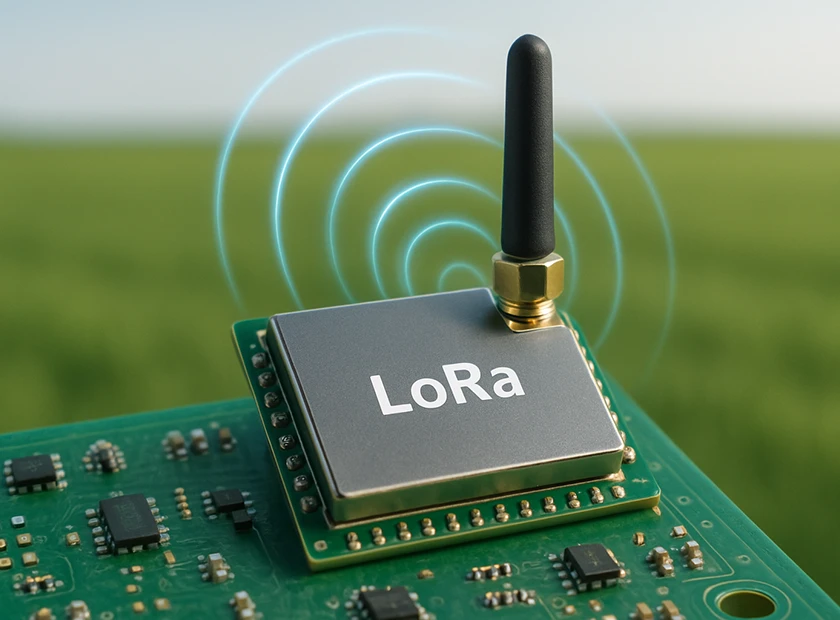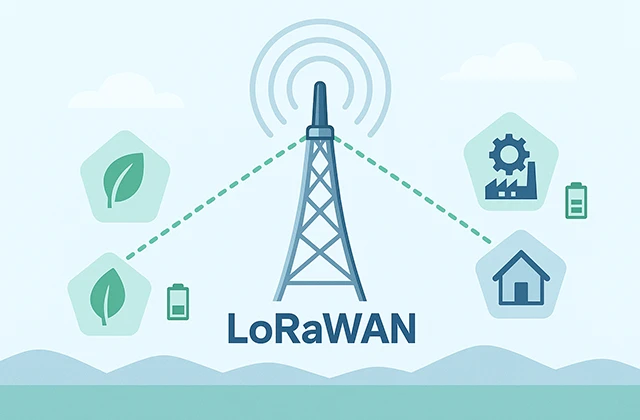LoRa is Revolutionizing System Design with Unprecedented Efficiency

The Bottleneck Breaker: Are Your Systems Truly Efficient?
In today's interconnected world, data is king. But transmitting that data, especially from remote or numerous devices, often hits a wall. Traditional Wi-Fi struggles with range, cellular networks can be power-hungry and costly for simple sensor readings, and wired solutions are often impractical. This bottleneck stifles innovation and limits the potential of smart applications. What if there was a way to build vast, intelligent systems that sip power, cover incredible distances, and operate cost-effectively? Enter the world of LoRa technology – a game-changer for anyone serious about building efficient systems.
LoRa: The Engine of Efficient Connectivity
LoRa (Long Range) is a low-power wide-area network (LPWAN) specification designed specifically for the Internet of Things (IoT). Its genius lies in optimizing for what many IoT applications actually need: sending small packets of data over long distances using minimal power. This isn't about streaming video; it's about efficiently collecting crucial information from sensors monitoring agriculture, tracking assets across a city, or managing industrial equipment.

LoRaWAN Gateway Tower
The efficiency gains with LoRa are multifaceted. Firstly, the long-range capability – often spanning kilometers – drastically reduces infrastructure requirements. Instead of needing numerous expensive gateways or complex mesh networks, a single LoRaWAN gateway (the network protocol layer often used with LoRa) can potentially serve thousands of devices scattered across a wide area. This simplifies deployment and maintenance, directly contributing to a more efficient overall system architecture. Imagine monitoring soil moisture across acres of farmland or tracking hundreds of bikes in a city – LoRa makes these scenarios feasible and efficient.
Secondly, LoRa devices are champions of low-power consumption. Devices can operate for years on a single small battery. This is critical for applications where mains power is unavailable or impractical, eliminating the need for frequent battery replacements or complex power infrastructure. This energy efficiency isn't just convenient; it's fundamental to building sustainable and cost-effective monitoring and control systems. For large-scale deployments, the cumulative effect of this power efficiency translates into significant operational savings, making LoRa a cornerstone of truly efficient system design. The LoRa physical layer's resilience to interference further boosts system reliability.
Building Your Efficient LoRa System: An Opportunity Knocks
Understanding the power of LoRa is one thing; implementing it is another. Building these efficient systems requires the right components and often, support for prototyping and production. This is where initiatives that lower the barrier to entry become invaluable. Recognizing the potential of LoRa to empower innovators, companies like Elecrow are stepping up.
Elecrow is currently running an exciting program featured on their blog: a LoRa Modules Giveaway and PCB Assembly Sponsorship. This initiative directly supports developers, makers, and businesses looking to leverage LoRa technology. By providing free LoRa modules – the very heart of your long-range, low-power devices – and offering sponsorship for PCB assembly, they are making it significantly more efficient and accessible to turn innovative LoRa-based ideas into reality. Whether you're developing a sophisticated industrial monitoring solution or a clever smart home gadget utilizing LoRaWAN, this kind of support can accelerate your project significantly. Accessing reliable LoRa hardware and professional assembly services streamlines the path from concept to a functional, efficient system.
